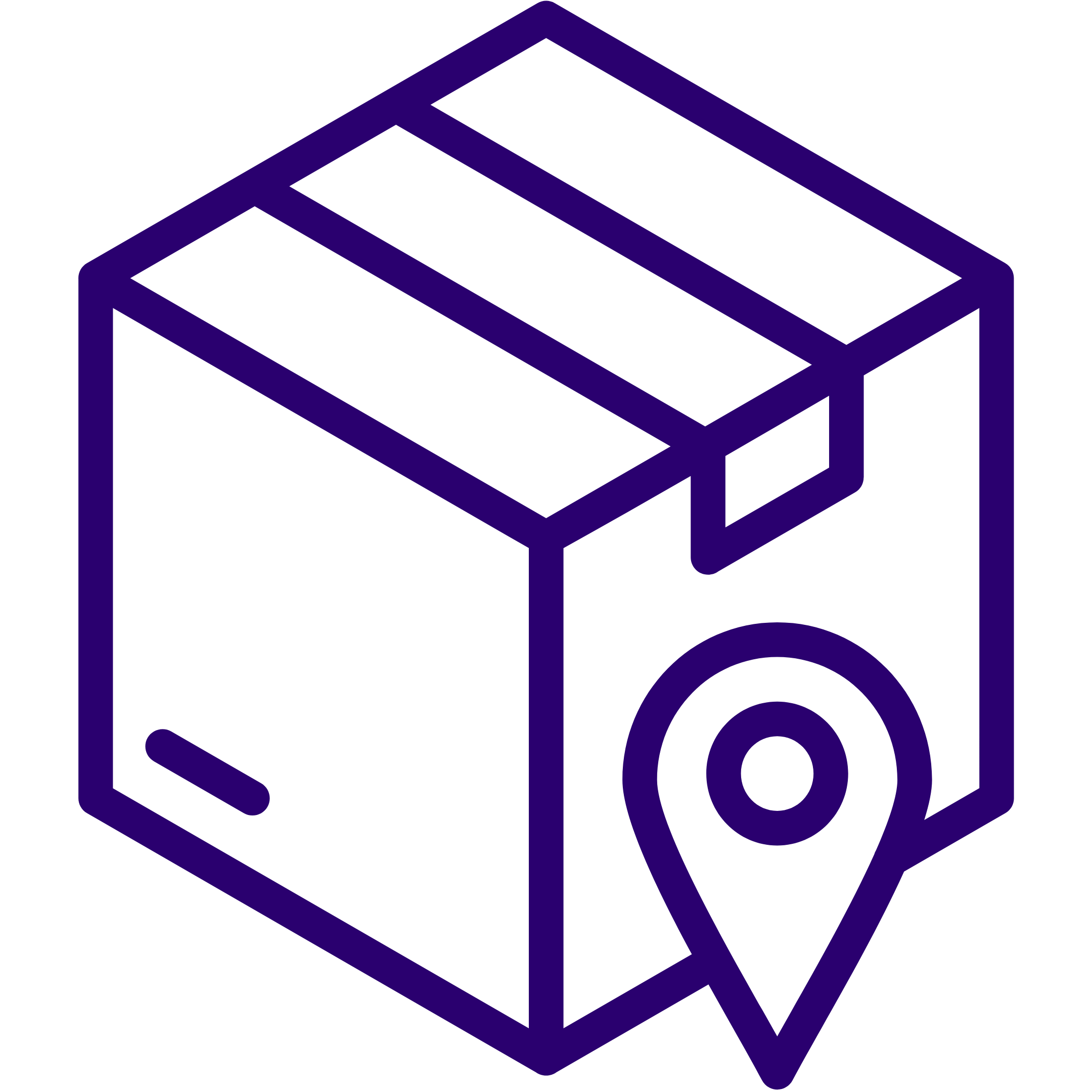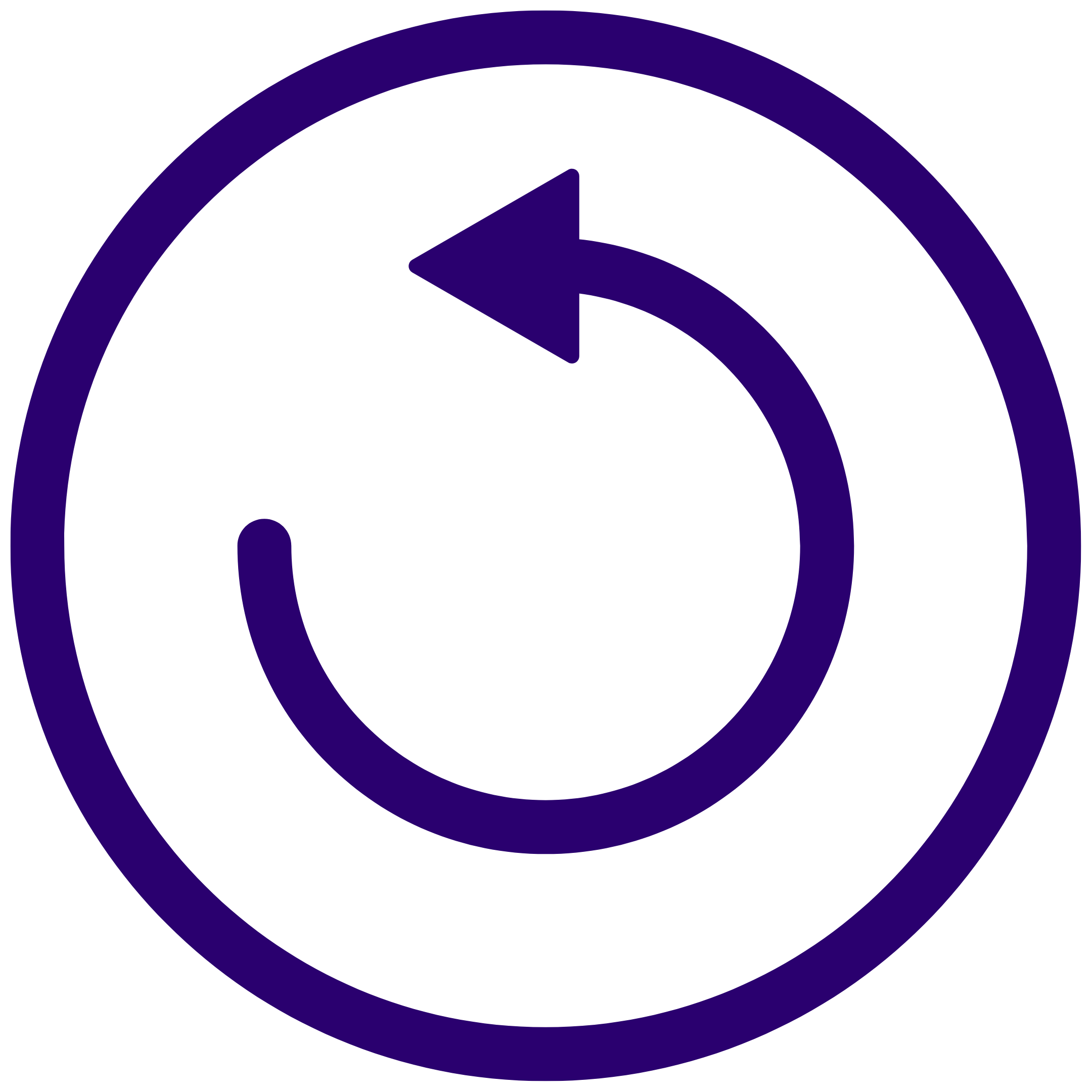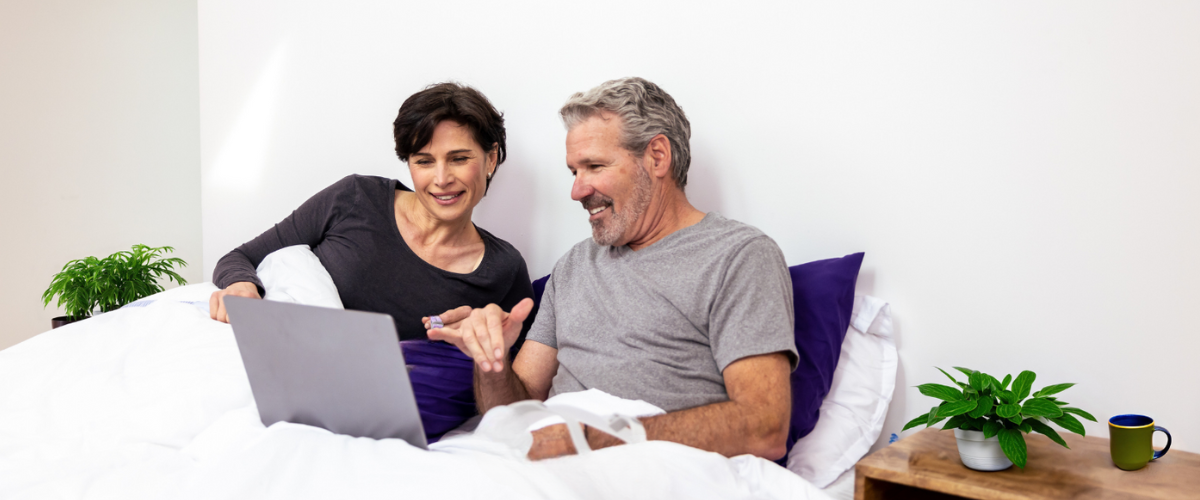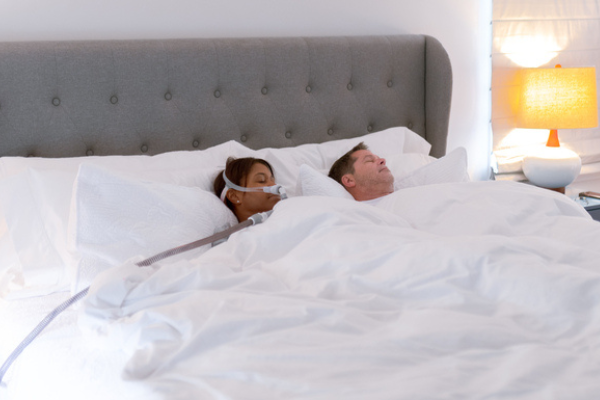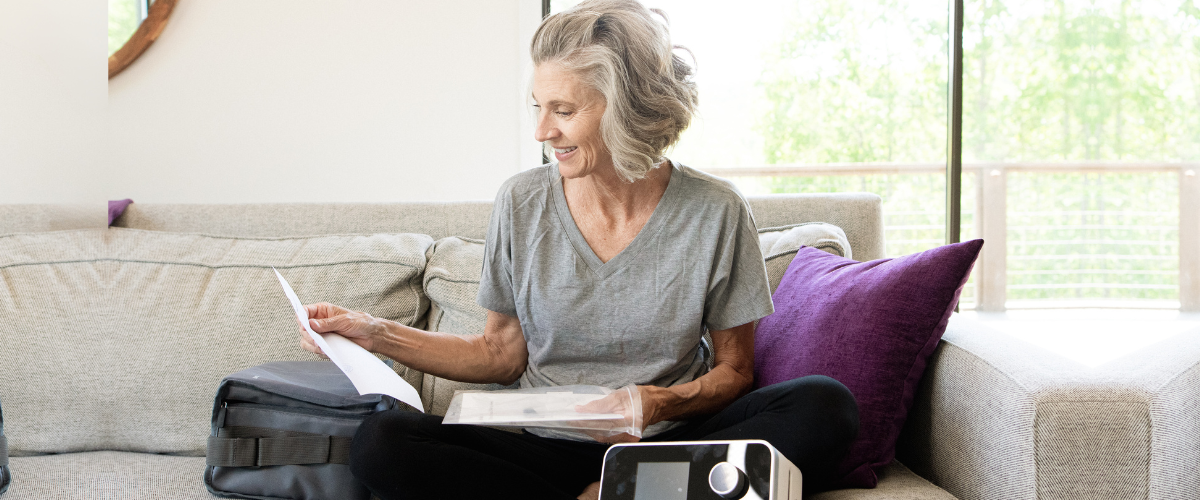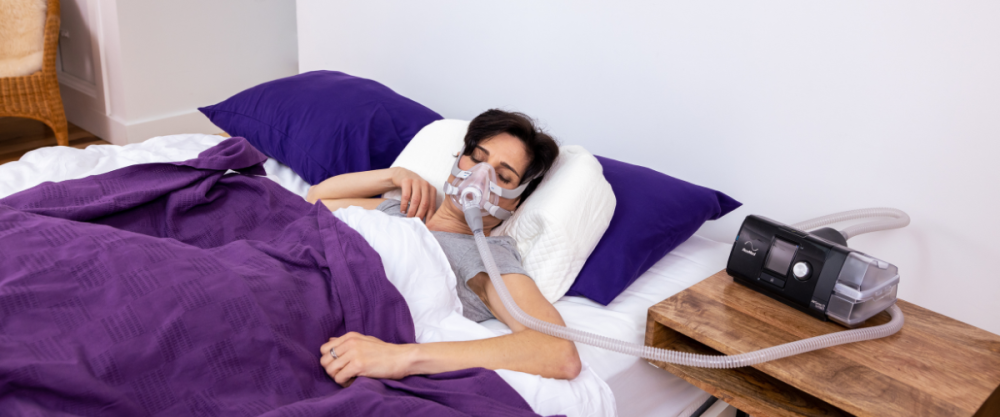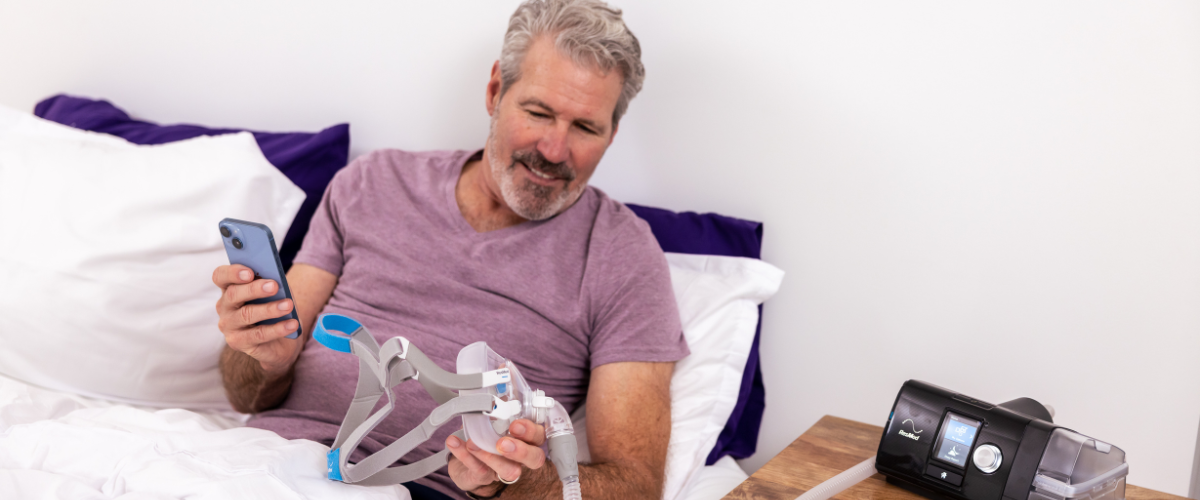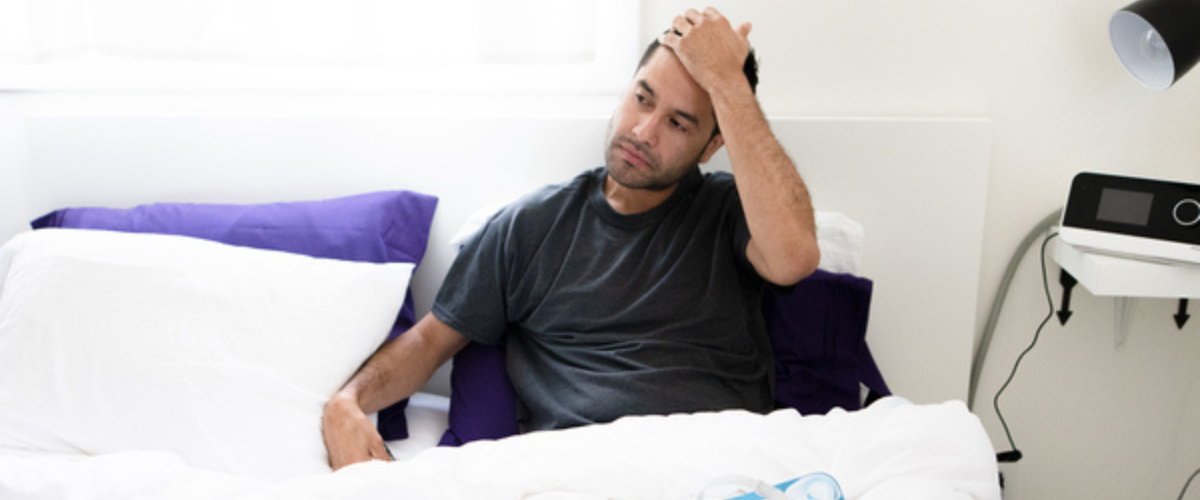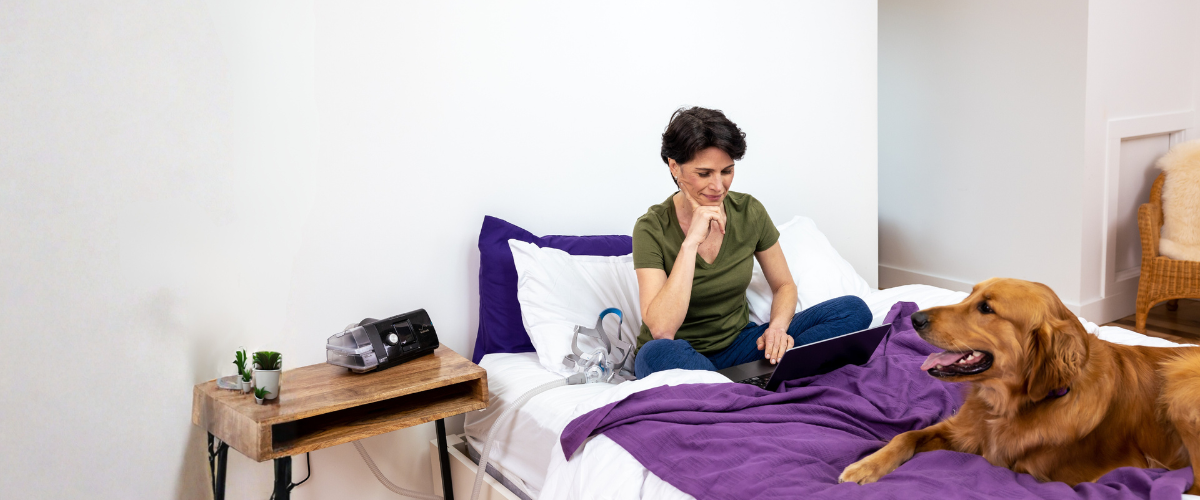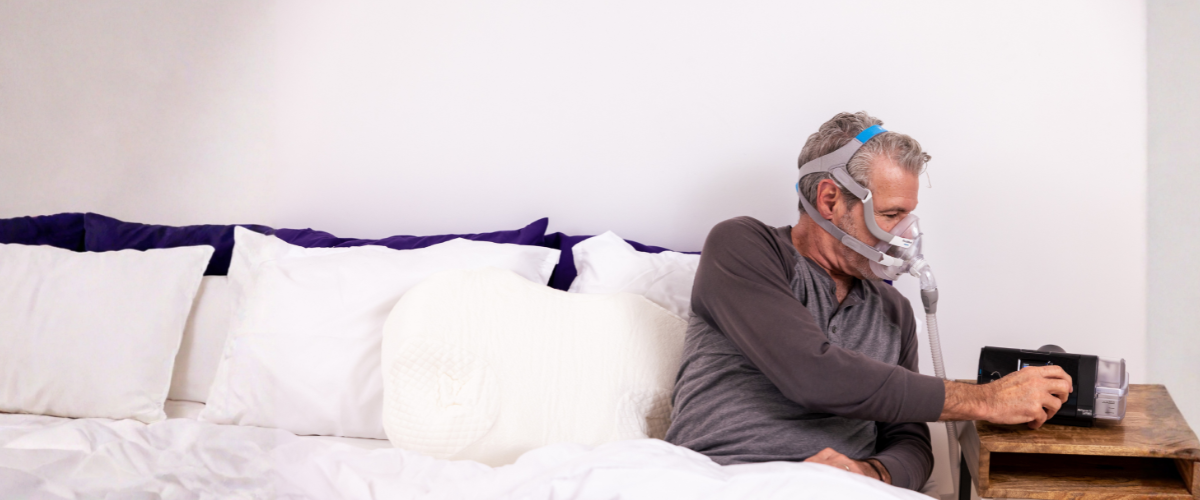The Benefits of Home Sleep Tests
At-home sleep apnea tests can help identify if you have obstructive sleep apnea (OSA) and lead you to proper treatment — all from the comfort of your own home and your own bed! Their affordability and convenience is coupled with high chance of accurate diagnosis, making it the easiest way to help you identify your sleep apnea treatment plan. There are many home sleep test options, and you can find our simple and effective home sleep test here!
The Basics of Obstructive Sleep Apnea (OSA)
If you’ve been waking up feeling tired and groggy despite getting a full night's sleep, you may have considered the various reasons for this sleepiness, headaches, and begun looking for treatment options. These are many signs of a serious sleep disorder called obstructive sleep apnea, which affects millions of people worldwide. Fortunately, there's a convenient way to diagnose and treat this sleep disorder, home sleep tests (HSTs), which can help identify one of the most effective treatments for this sleep disorder. This treatment is called Continuous Positive Airway Pressure (CPAP) therapy. Let’s explore the convenience of home sleep tests and the numerous benefits of CPAP treatment for sleep apnea to help you experience a restful sleep each night.
Understanding Sleep Apnea & Common Symptoms
Sleep apnea is a potentially dangerous sleep disorder characterized by interrupted breathing during sleep. There are three main types: obstructive sleep apnea (OSA), central sleep apnea (CSA), and complex sleep apnea syndrome, also known as treatment-emergent central sleep apnea (TECSA). OSA is the most common form and occurs when the muscles at the back of your throat relax excessively, causing a blockage in your airway.
-
Loud Snoring: One of the most noticeable symptoms of sleep apnea is loud and chronic snoring. This may indicate an issue with your airway being blocked and affecting your breathing patterns, which may even have negative impacts on your nighttime blood oxygen levels. If you snore loudly and consistently, especially if it’s combined with pauses and gasping for air, it may be time to consider a sleep study.
-
Excessive Daytime Sleepiness: People with sleep apnea often wake up feeling unrefreshed and struggle with daytime sleepiness and fatigue. This can impact your ability to concentrate, stay alert, and perform daily tasks.
-
Morning Headaches: Frequent morning headaches are another common symptom, often caused by the oxygen deprivation due to low oxygen levels in sleep, commonly associated with sleep apnea.
-
Difficulty Concentrating: Sleep apnea can impair cognitive function, leading to difficulty concentrating, memory problems, and even mood swings.
-
Waking Up with a Dry Mouth or Sore Throat: Breathing through your mouth during sleep due to a blocked airway can leave you with a dry mouth and sore throat in the morning.
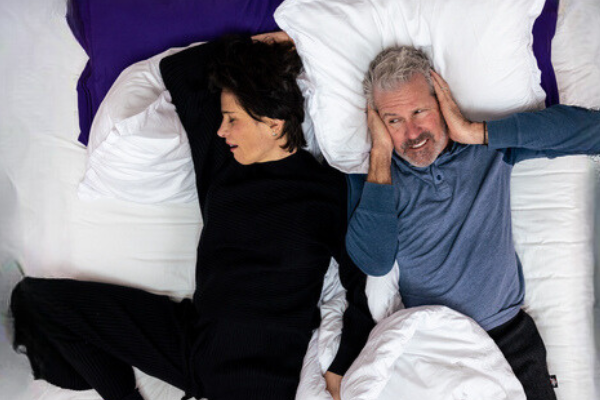

Traditional Sleep Studies
Traditionally, your primary care physician would direct you to a sleep specialist to conduct an in-lab sleep test. This is the traditional step to diagnosing sleep apnea, which requires an overnight stay in a sleep clinic or sleep center for an overnight sleep study (polysomnography test) with a sleep specialist, which measures various physiological parameters during sleep. These parameters typically include monitoring and measuring:
- airflow
- heart rate
- breathing patterns
- body position
- brain waves
- blood oxygen levels
- sleep position
- sleep stages
- leg movements
- breathing effort
- respiratory effort
After this in-lab test, the sleep medicine professional will typically go over your test results and look at possible sleep disorders, including sleep apnea, and compare them to other medical conditions that could overlap.
The Convenience of Home Sleep Tests and Home Sleep Studies
Recent advances in technology have made it possible to conduct home sleep tests (HSTs) in the privacy of your own home, which offer many advantages, including:
- Comfort and Convenience: With an HST, you can sleep in the comfort of your own bed, allowing for a more accurate representation of your sleep patterns and habits. Our home sleep test even allows you to conduct the majority of the study from your computer or smart phone!
- Cost-Effective: Home sleep tests are often more affordable than an in-lab sleep study, making them accessible to a broader range of people.
- Accessibility: HSTs are particularly beneficial for individuals who live in remote areas or have limited mobility or time.
- Immediate Results: Many HSTs provide results within a few days, enabling faster accurate diagnosis and treatment options.


The Benefits of CPAP Treatment
If diagnosed with sleep apnea, your healthcare provider may recommend CPAP therapy as a treatment option. CPAP stands for Continuous Positive Airway Pressure, and it involves wearing a mask over your nose (or both your nose and mouth) during sleep and utilizing a CPAP machine. Here are some of the benefits of CPAP treatment:
- Improved Sleep Quality: CPAP therapy helps keep your airway open, reducing or eliminating apnea events and snoring, which can significantly improve the quality of your sleep.
- Increased Energy: As sleep apnea symptoms improve, you'll likely experience increased daytime energy and alertness, making it easier to tackle daily activities.
- Enhanced Cognitive Function: Improved sleep quality can lead to better cognitive function, including improved concentration, memory, and problem-solving abilities.
- Lower Health Risks: Treating sleep apnea with CPAP can reduce the risk of associated medical conditions, including hypertension, heart disease, and diabetes.
- Better Mood and Emotional Well-being: Many people report feeling less irritable and more emotionally stable after starting CPAP therapy.
Long story short (before you're bored to sleep)…
If you suspect you have sleep apnea, don't ignore the signs. A home sleep test offers a convenient and cost-effective way to diagnose this potentially serious condition, all in the privacy of your own home. Plus, it gives you the confidence that you are able to get a better sleep.
And, if you are diagnosed with sleep apnea, CPAP treatment can greatly improve your quality of life by enhancing your sleep, boosting your energy levels, and reducing the risk of other health problems. A restful sleep is essential for overall well-being and getting a bright start to the next day, and addressing sleep apnea can be a significant step toward achieving it.
Resources
Ambardekar, N. (n.d.). Sleep: What happens to body temperature, brain activity, and breathing. WebMD. https://www.webmd.com/sleep-disorders/what-happens-body-during-sleep
The best temperature for sleep. Cleveland Clinic. https://health.clevelandclinic.org/what-is-the-ideal-sleeping-temperature-for-my-bedroom/
Okamoto-Mizuno, Kazue, and Koh Mizuno. “Effects of Thermal Environment on Sleep and Circadian Rhythm.” Journal of Physiological Anthropology, 31 May 2012, www.ncbi.nlm.nih.gov/pmc/articles/PMC3427038/
“Introduction to Menopause.” JHM, 19 Nov. 2019, www.hopkinsmedicine.org/health/conditions-and-diseases/introduction-to-menopause
“Hot Flashes.” Mayo Clinic, 20 May 2022, www.mayoclinic.org/diseases-conditions/hot-flashes/symptoms-causes/syc-20352790
Viera, Anthony J., et al. “Diagnosing Night Sweats.” American Family Physician, 1 Mar. 2003, www.aafp.org/pubs/afp/issues/2003/0301/p1019.html
Ting, Dr. Selene. “Drug-Induced Hyperhidrosis.” DermNet, https://dermnetnz.org/topics/drug-induced-hyperhidrosis

